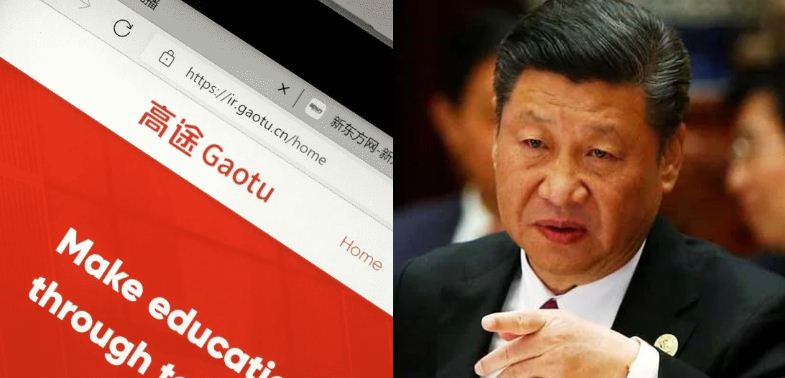China’s EdTech sector has been hammered down. The hammer and sickle have been brought down heavily on the bustling sector. At the core of China’s rather gigantic and unprecedented crackdown on the EdTech sector is Xi Jinping’s insecurity of losing his grip over the Chinese populace. The youth in China are not big fans of the Chinese Communist Party (CCP), and many among them have launched a “Do Nothing” movement against the Chinese regime. Others, meanwhile, are promising to remain single and not procreate – a severe setback for the CCP as it desperately attempts to revive China’s declining birth rates.
Banking on the Coronavirus driven lockdowns and social distancing measures, the Chinese EdTech sector experienced extraordinary growth and allured some 84,000 new operators last year alone. The technology-driven education stocks bagged investments totalling 106 billion Yuan in the period. Xi Jinping’s latest restrictions on the EdTech sector ban companies that teach school curriculums from making profits, raising capital or going public. This has shut all doors for these companies to make any form of capital and for investors to get their desired exits.
So, the Chinese EdTech sector’s story is over just when it was beginning to blossom. Larry Chen, the former school teacher who became one of the world’s richest people, has lost his billionaire status as China cracks down on its private education sector. The tycoon’s net worth tumbled from $16 billion to just about $230 million in a matter of six months – a wealth evaporation of 99 per cent. This came after Xi Jinping dealt a massive $800 billion blow to China’s tech giants in the last few months with his anti-market practices.
Read more: Jinping has reduced China’s EduTech billionaires to millionaires within weeks
What Xi Jinping fears the most is the immense influence enjoyed by these EdTech giants over millions of young learners. These operators hold the power to sway millions of Chinese students away from the official CCP mandate. Now, Jinping plans to create a specialised agency that would not only restructure their day-to-day operations but also guide operators on setting up a Communist Party chapter within their organizations. Thus, the agency will ensure that CCP’s grip on the online learners is tightened through non-traditional channels of education as well.
China’s EdTech sector was private, and largely out of government purview. What we mean to say here is that the sector was as out of the regime’s control as any sector can be in China – which is not much. However, even a bit of a freedom for any sector can have catastrophic consequences for the CCP. A large portion of those who benefitted from the EdTech sector’s growth in China were those who could afford such online education.
Therefore, China’s EdTech sector had the ability of creating an entire class of young Chinese people who would have an exposure to information which the usual Chinese students, still heavily dependent on traditional modes of teaching would not have. The traditional curriculum in China propagates subservience to the CCP, while the private EdTech sector did not really fulfil this objective. Therefore, the sickle of the CCP has been used to clip the sector’s wings.
Officially, the CCP’s excuse for doing so is that the excessive tutoring via online modes not only torments youth, but also burdens parents with expensive fees. Bloomberg has reported that he EdTech segment has been accused of causing social inequalities. “Edtech is allegedly triggering a social inequality among urban and rural citizens of China by providing additional coaching to those who can afford it. This especially has a greater impact in tutoring students for China’s university entrance exam, gaokao,” it said.
The reality, however, is that the EdTech sector, much like the Tech sector of China, was growing too big and too powerful for the CCP to handle. Therefore, Xi Jinping drove both the sectors to the ground while he still could.
